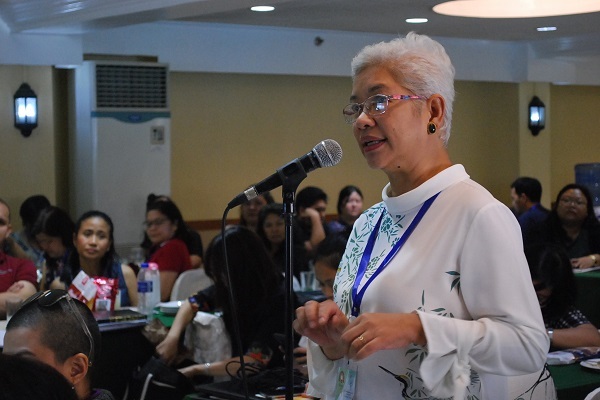Talking Points Must Be Clear in Interfaith Dialogue: Filipino Prof.

With the rise of religious extremism in recent years, experts are stressing the need to promote interfaith dialogues as a means to solve differences and arrive at a society where people live in peaceful coexistence.
To further discuss the issue, IQNA has reached out to Maria Bernadette L. Abrera, a professor of History at the University of the Philippines Diliman.
She is currently the Dean of the UP College of Social Sciences and Philosophy where she also served as the Chair of the Department of History. She has been the recipient of several Professorial Chair awards including the UP Centennial Professorial Chair (2018) and the UP Centennial Faculty Grant (2012). Her research focus is on cultural history and the indigenous knowledge system, having written on the indigenous belief system, the status of women in pre-colonial Philippines and traditional boat building technology.
Following is her interview with IQNA:
IQNA: In recent years, we have seen an increase in religious extremism in different countries and societies. In your opinion, what is the root of this extremism among followers of different religions?
Abrera: Religion offers a form of cultural identity and sense of social belonging. The practice of religion is a social good associated with positive outcomes such as tolerance, sacrifice, or finding a life purpose. Religious extremism, which is also used interchangeably with religious fundamentalism, is negative and associated with negative outcomes such as prejudice and violence.
Religious extremism can occur when the dimension of belief and belonging is used by groups with a radical agenda for political purposes. In this manner religion is used to gain political power.
IQNA: Some believe that inter-religious dialogues can largely eliminate social tensions in societies and prevent the emergence of extreme behaviors and actions by followers of different religions. what is your opinion?
Abrera: Interreligious dialogue is an avenue by which believers of different faiths can come together in a respectful and open atmosphere. Extremism has emerged as a symptom of alienation and as a response to a long-term idea of victimization with no recourse.
Ideological narratives that offer simplistic solutions to economic and political inequality become attractive particularly to young people who are always idealistic. Dialogue, whether inter-religious, inter-ethnic, or other forms, is a welcome vehicle to be able to understand the other and situate oneself within this diverse community of fellow human beings.
Inter-religious dialogue or any other form of dialogue opens a space of discourse that offers alternative perspectives. It is important to humanize the visualization of the “other”.
IQNA: What is the biggest obstacle to the formation of inter-religious dialogues in different societies?
Abrera: I may not be in a position to answer this. However, for any kind of dialogue to succeed, the talking points must be clear. What is the purpose of the dialogue and what issues will be discussed? Are the participants qualified to talk on the issues? Whom do they represent? What are the agreements about the possible outcomes of the dialogue? What are the rules to be observed in the dialogue? These data-x-items have to be clear before any kind of dialogue can start.
IQNA: One of the issues that has been discussed a lot in recent years is the role of women in establishing peace in societies. What role do you think women can play in establishing peace in societies?
Abrera: Women have a natural inclination and capacity to forge human bonds. Motherhood, whether it is a biological or a spiritual motherhood, is innately inclined to peace because it is rooted in a desire for the good and in the desire to see life flourish. Women have a “feminine genius”, in the words of the former Pope John Paul II, referring to the special capabilities of women to create a more kind and more gentle surrounding.
IQNA: In your country, what is the relationship between followers of different religions, especially Muslims and Christians, and what do religious leaders do to establish peace?
Abrera: There is an atmosphere of acceptance and peace between Muslims and Christians in the Philippines. I have personally experienced this myself, having done field research in a predominantly Muslim area and having been received in the home of many Muslims during that time. There are religious and civil organizations dedicated to Christian and Muslim dialogue, and many academic studies discussing this matter.
Interview by Mohammad Hassan Goudarzi



